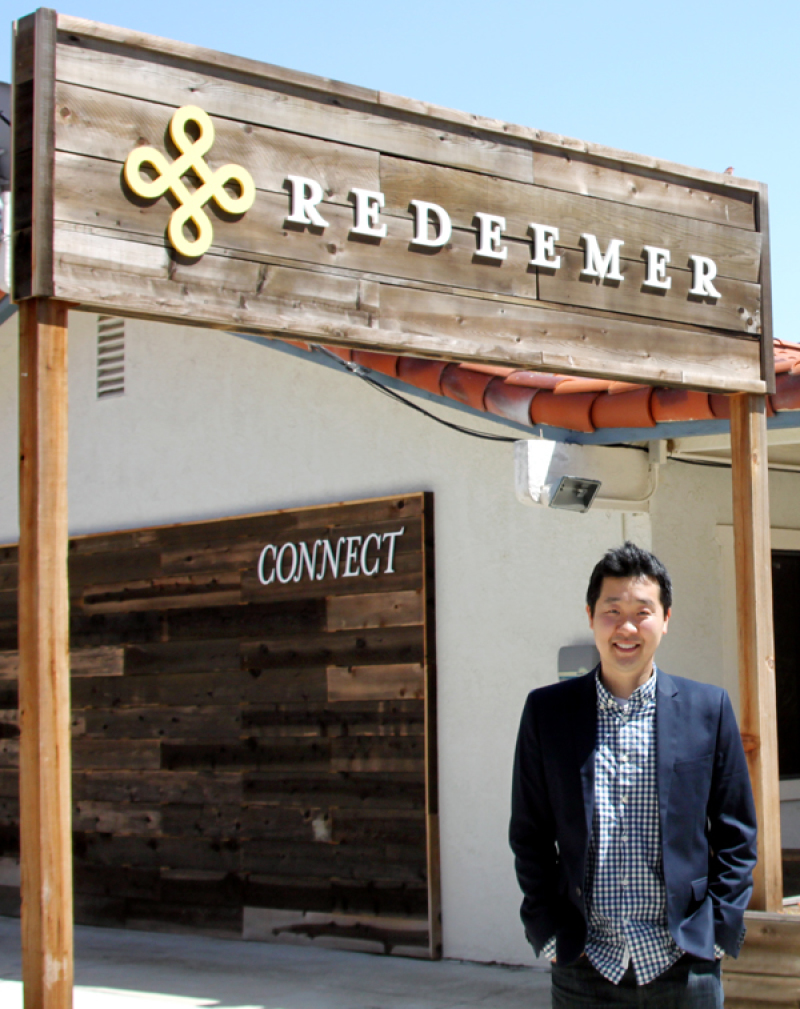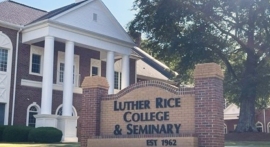
Pastor Paul Kim is the senior pastor of Redeemer Presbyterian Church, located in San Diego, CA. Though Redeemer is a multi-ethnic, multi-generational church with over 1,000 regular members, Kim himself comes from the Korean immigrant church background.
"I grew up in the Korean church, and I was a part of the Korean church world," Kim said, adding that his parents also are devout Christians, and that his father "reads the entire Bible once per month." Kim served at Korean Central Presbyterian Church in San Francisco during his college years and as an intern pastor for two years while in seminary. Kim also served at Cerritos Presbyterian Church for a few years with his wife.

Pastor Paul Kim is the senior pastor of Redeemer Presbyterian Church located in San Diego, CA.
Kim is one of the few notable Korean American pastors who serve as the senior pastor of a multi-ethnic church, along with Pastor Eugene Cho, who leads Quest Church in Seattle. Many may view Kim's or Cho's ministry as a "successful" one, as the number of Korean American pastors leading multi-ethnic congregations are few in number, and especially since both of their congregations are relatively large. Kim's church, in particular, has ties with Redeemer Presbyterian Church in New York, which is led by Pastor Timothy Keller, an internationally known preacher and author.
However, Kim says that his motivation for transitioning into and leading a multi-ethnic congregation was not out of a thought that a multi-ethnic context was somehow more ideal, more effective, or more appropriate than that of a Korean American or Korean immigrant church context. On the contrary, Kim simply believed that this was the calling and the vision that God had given him specifically.
Though Kim came from the Korean immigrant church background, he felt that the ministry he would be able to do in that context was limited due to the fact that he isn't a fluent Korean speaker.
"I always had a positive experience in the Korean church," Kim said. "But my Korean has always been limited. I was never one who could fully understand Korean, nor speak it fluently, so it was difficult for me to swim in that field." At the time, Kim had felt that his lack of fluency in the Korean language was a limitation, but it seems that perhaps God simply had a different plan for his ministry.
While serving in the Korean church, Kim said he felt that God was calling him into a multi-ethnic context, as non-Korean non-believers were brought to Kim's attention.
"While my wife and I were serving at the college ministry in Cerritos Presbyterian Church, some people would approach us saying that they wanted to check out church, but they were neither Christian nor Korean," Kim said. "One example of that was one of our neighbors in our apartment building. And because we were going to a Korean church, we weren't sure if they would feel comfortable coming to our church."
"Since then, we've had a vision for a multi-ethnic and multi-generational church, and we wanted to pursue planting a church in which anyone in the community can come," Kim said.
Eventually, Kim planted a church in San Diego in 2003, which was then a congregation of about 50 people from pan-Asian and white ethnic backgrounds. This church plant eventually became Harbor Carmel Valley Church, which initially consisted of mostly families, but grew to two campuses with three services.
A few years thereafter, Harbor Carmel Valley began planning with another church, which was called North Coast Presbyterian Church at the time, on combining the two churches into one congregation.
"At the time, Harbor Carmel Valley was about 500 people that were mostly young, pan-Asian, and white, while North Coast had around 200 people, which were mostly white with older members," Kim described. "And after two years of praying and discussing, we combined and became Redeemer Presbyterian Church." This new, combined congregation is now about a year and a half old.
Kim shared that Redeemer has had an exciting journey, but that there are also challenges that the church faces as a multi-ethnic and multi-generational church--mainly, that people tend to remain within their comfortable groups.
"I saw that coming to a church like this would be really challenging at first for people who aren't used to this kind of environment, or for people who aren't used to having friends that aren't like themselves," Kim said. "It's difficult for the Korean American college students or young adults who are comfortable with each other to break out of that circle, and it's difficult for the white, 60-year-old to engage with a young Chinese American family."
Though the context is different, members of a Korean immigrant church, or any church, for that matter, face similar struggles. The Korean immigrant church context experiences a similar discomfort generationally, as the older and younger members may feel hesitant reaching out to build relationships with one another across uncomfortable language and culture barriers. Youth pastors may find that middle and high school kids form cliques and are hesitant to build friendships with peers that are unlike themselves. Church leaders may find that departments become comfortable with each other and that there is not as much reaching out beyond that.
Redeemer has been trying to address this obstacle in a number of ways. Kim and the church leadership have been encouraging members to be humble toward one another with an open mindset to learn.
"We openly discuss the challenges of being a multi-ethnic church," Kim said. "We try to emphasize that we need to be humble and to learn from one another, and not to judge each other. We encourage the members to open themselves up, and not to just remain in their comfort zones -- there's so much we can learn from one another. And having that open discussion probably makes it more intentional in the church."
The leaders have also been trying to create opportunities to allow members to build relationships with one another. Kim mentioned a women's tea event that Redeemer recently hosted, during which over a hundred women from their twenties to their eighties attended and had the opportunity to get to know members that they may not have been able to connect with before.
Finally, the leadership emphasize that, first and foremost, the identity of the church is that of Jesus Christ and the gospel.
"Yes, we are a multi-ethnic church, but here, it's about Jesus first," Kim said. "It's about the gospel as being central, and how the gospel makes us a true community."
"Ultimately, I think there are different places for different kinds of churches. If you're a pastor, don't think that your church has to look like this or that," Kim said. "Whatever God is doing in each church is a wonderful thing, because the church is Jesus' church, and there is a need for all kinds of different churches for different communities and people. These are just different snapshots of the body of Christ. And at the end of the day, it's just about worshipping Jesus and telling people about Jesus."
"Even for Redeemer, I'm very thankful for what God has done here -- I don't think I could've orchestrated or made up this story," he continued. "And we want to be careful not to paint a picture and say, this is what success looks like, from the size to the look of the church. Our vision is to be a church that's centered on the gospel that renews everything. And from there, it's not about having these great programs, or gaining attention from the public. We simply want to be faithful to what we are called to do, and remain prayerful, and see where God takes us."
















